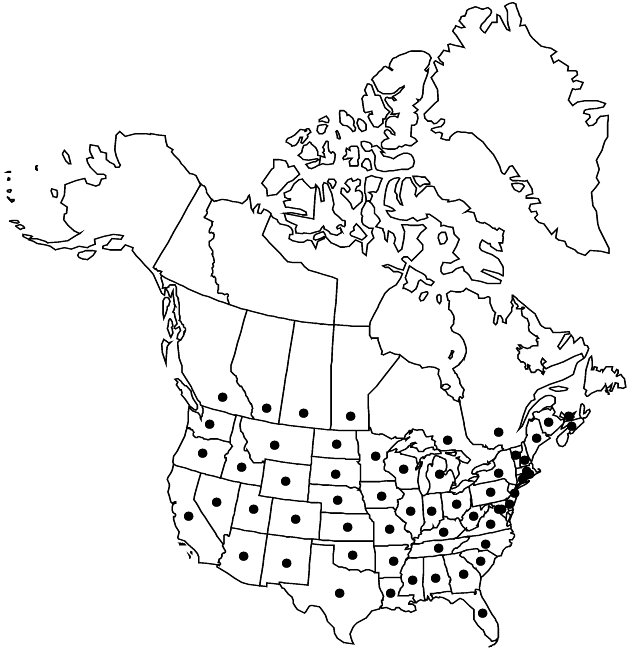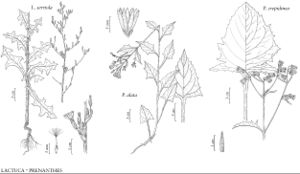Lactuca serriola
Cent. Pl. II, 29. 1756.
Annuals (perhaps persisting), (15–)30–70(–100+) cm. Leaves on proximal 1/2–3/4 of each stem; blades of undivided cauline leaves usually ± oblong, sometimes obovate to lanceolate, margins denticulate, usually prickly, midribs usually prickly-setose, rarely smooth. Heads in paniculiform arrays. Involucres 9–10(–12) mm. Phyllaries usually reflexed in fruit. Florets 12–20; corollas yellow, usually deliquescent. Cypselae: bodies pale grayish to tan, ± flattened, oblanceolate, 2.5–3.5 mm, beaks ± filiform, 2.5–4 mm, faces (3–)5–9-nerved; pappi white, (3–)4–5 mm. 2n = 18.
Phenology: Flowering (May–)Jul–Sep(–Oct).
Habitat: Roadsides, disturbed sites
Elevation: 10–2300 m
Distribution

Introduced; Alta., B.C., Man., N.B., N.S., Ont., P.E.I., Que., Sask., Ala., Ariz., Ark., Calif., Colo., Conn., Del., D.C., Fla., Ga., Idaho, Ill., Ind., Iowa, Kans., Ky., La., Maine, Md., Mass., Mich., Minn., Miss., Mo., Mont., Nebr., Nev., N.H., N.J., N.Mex., N.Y., N.C., N.Dak., Ohio, Okla., Oreg., Pa., R.I., S.C., S.Dak., Tenn., Tex., Utah, Vt., Va., Wash., W.Va., Wis., Wyo., Europe, also introduced nearly worldwide.
Discussion
The name Lactuca scariola Linnaeus is evidently illegitimate; it is a superfluous name based on the same type as L. serriola. Plants included here in L. serriola with most leaf blades obovate to lanceolate (not lobed) and lacking prickles on midribs have been called L. scariola subsp. or var. integrata or L. serriola forma integrifolia or L. serriola var. integrata.
Selected References
None.
